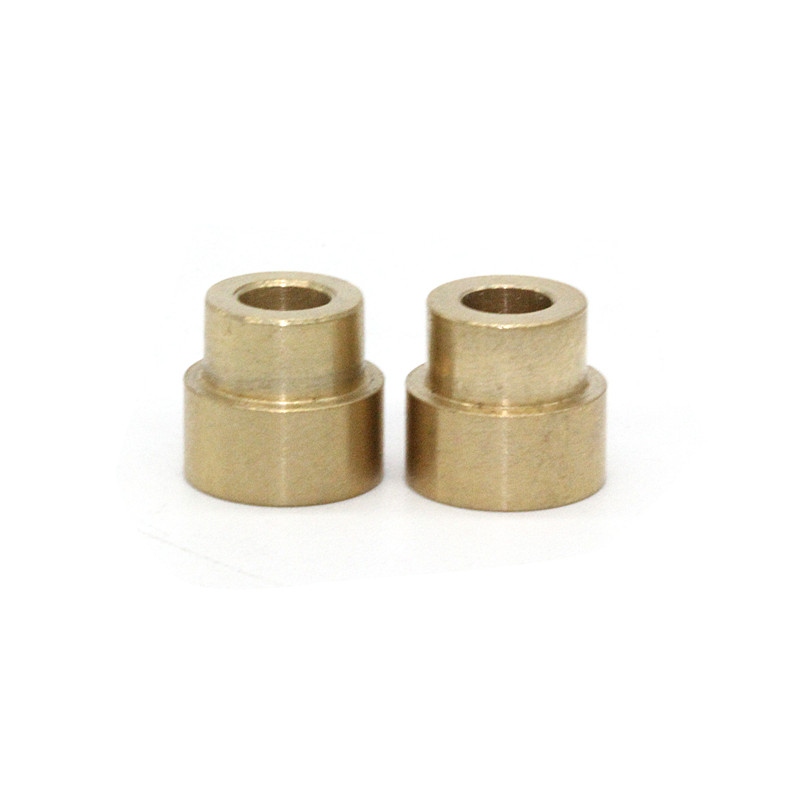Introduction to Brass Threaded Sleeves
Brass threaded sleeves are precision-engineered cylindrical components designed to provide secure threaded connections in various mechanical and plumbing systems. These sleeves typically feature internal and/or external threads made from high-quality brass alloys, offering exceptional durability and corrosion resistance. The standard composition consists of CuZn39Pb3 alloy (CW614N) containing 57-60% copper, 2.5-3.7% lead, and the remainder zinc, which provides optimal machinability with a machinability rating of 100% (free-cutting brass standard).

Key Technical Characteristics
Brass threaded sleeves exhibit several critical performance parameters:
Tensile Strength: 340-460 MPa (ASTM B16)
Yield Strength (0.2% offset): 125-200 MPa
Elongation at Break: 25-40% in 50mm
Hardness: 65-85 HRB (Rockwell B scale)
Thermal Conductivity: 115-125 W/m·K at 20°C
Electrical Conductivity: 26-28% IACS
Pressure Rating: Up to 1,000 psi (69 bar) for standard sizes
Temperature Range: -20°C to 120°C continuous service
Thread Specifications and Dimensional Standards
Brass threaded sleeves conform to multiple international standards for thread geometry and dimensional tolerances. Common thread profiles include:
Metric Threads: M4 to M24 with 0.7mm to 3mm pitch (ISO 68-1)
Unified Threads: #4-40 to 1"-8 UNC/UNF (ASME B1.1)
Pipe Threads: 1/8" to 2" NPT/NPTF (ASME B1.20.1)
Critical dimensional tolerances typically maintain ISO 2768-mK grade for general dimensions and 6g/6H thread class for metric threads. Wall thickness ranges from 1.5mm for small sleeves (under 10mm ID) to 5mm for large sleeves (over 25mm ID), with concentricity maintained within 0.05mm TIR for precision applications.
Material Advantages and Performance Features
The selection of brass alloys for threaded sleeves provides distinct technical benefits:
Corrosion Resistance: Excellent resistance to dezincification (ISO 6509 rating ≤200μm/year) and stress corrosion cracking
Biological Properties: Natural antimicrobial characteristics (99.9% bacterial reduction in 2 hours per EPA testing)
Friction Properties: Coefficient of friction against steel of 0.35-0.45 (dry) and 0.15-0.25 (lubricated)
Thermal Expansion: 20.5 μm/m·°C linear expansion coefficient
Sealing Capability: Can achieve ANSI B16.104 Class IV seat leakage with proper machining
Primary Application Scenarios
Brass threaded sleeves serve critical functions across multiple Industries:
Plumbing Systems: Used in potable water distribution (NSF/ANSI 61 certified), with typical service life exceeding 25 years in municipal water systems
Hydraulic Circuits: Employed in medium-pressure hydraulic systems (up to 3,000 psi burst pressure) for agricultural and construction equipment
Electrical Enclosures: Provide EMI/RFI shielding with ≥60 dB attenuation at 1 GHz when properly installed in junction boxes
Marine Applications: Saltwater-resistant versions with C68700 alloy (arsenical brass) withstand 5,000+ hours in salt spray testing (ASTM B117)
Industrial Machinery: Used as wear sleeves in rotating equipment, demonstrating ≤0.01mm/year wear rate in lubricated service
Installation Best Practices
Proper installation ensures optimal performance and longevity:
Thread Engagement: Minimum 1.5 times nominal diameter for full strength (e.g., 12mm engagement for M8 sleeve)
Torque Values: 15-20 N·m for M10 sleeves in brass-to-brass connections (lubricated with PTFE paste)
Alignment Tolerance: ≤0.5° angular misalignment to prevent thread galling
Sealant Selection: Use only non-hardening pastes (containing ≤15% solids) for potable water applications
Maintenance and Service Life Extension
Effective maintenance protocols for brass threaded sleeves include:
Cleaning Procedures: Use brass-approved cleaners (pH 6-8) with<5% abrasive="" content="" for="" surface="" cleaning="">
Inspection Intervals: Visual inspection every 6 months in critical service, checking for dezincification (pink discoloration exceeding 100μm depth)
Lubrication Schedule: Reapply food-grade lubricant (USDA H1) every 5 years or 2,500 actuation cycles
Corrosion Monitoring: Measure wall thickness annually using ultrasonic testing (minimum remaining wall ≥60% of original)
Replacement Criteria: Replace when thread damage exceeds 30% of engaged length or when corrosion pits exceed 0.5mm depth
Specialized Variants and Custom Configurations
Manufacturers offer specialized brass threaded sleeve options:
High-Temperature: C36000 alloy with silicon additions for service up to 200°C
Non-Sparking: Beryllium-copper (C17200) variants for explosive environments
Precision Ground: ID/OD ground to h6/H7 tolerance for bearing applications
Coated Versions: Electroless nickel plating (25-50μm) for enhanced wear resistance





 English
English

